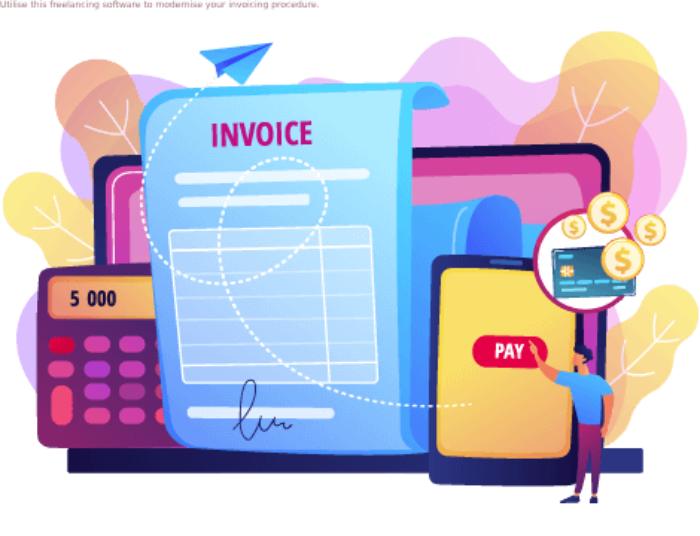Seven Sales And Buying Trends On LinkedIn: Virtual sales top the company’s fifth sales report that will shape the future of sales. Virtual sales are here to stay. It is the message from LinkedIn’s fifth annual sales status report that asked the question: How persistent is the change in sales? “All of this,” said Craig Rosenberg, Gartner’s senior vice president. Others agree.
The report shows seven trends that LinkedIn sees as shaping the future of sales:
Table of Contents
1 Virtual selling is good for sellers and even well for buyers.
Half of the buyers surveyed said working remotely made the buying process easier. Virtual selling is now the norm, according to the report. Remote jobs on LinkedIn have more than quintupled worldwide since the start of the pandemic, the company said.
As a result, it wasn’t easy to reach buyers only virtually. According to LinkedIn survey data, 64% of buyers worked more than half the time in North America remotely.
“Buyers seem to like the deal: 70% say they want to work remotely half or more of the time in the future,” the report said, easing the buying process. ”
The need for virtual sales skills isn’t going to change anytime soon, the report says. More than half of buyers (65%) said they would not meet sellers in person until the second half of 2021.
2 Sales organizations and managers must now adapt to a distant world of work
The study found that 86% of business managers believe managing change is more important than five years ago. In the last LinkedIn sales report, it was 70%.
The changes most cited by sales professionals are measuring sales processes and results in different ways (51%), adding new technology (51%), and introducing new recruiting practices (50 %).
With the advent of remote working, sales organizations can hire talent from virtually anywhere in the world, resulting in better geographic diversity, the report says. Beyond the region, companies can also broaden their sales teams based on gender, race, and other traits beyond the area.
3 Sales organizations prevent sellers from prioritizing buyers.
While 65% of the sellers stated that they “always” put the buyer first, according to the survey participants, only 23% of the buyers agreed.
The report urges companies to adopt a “Buyer First Philosophy” that encompasses five principles: learn, define, easily share, solve, don’t sell, deliver value and earn trust. Survey data initiate that “Buyers say this type of sales behavior is important to them,” the report said.
4 These six sales behaviors are killing the business.
The behavior of the seller makes a difference. Unsurprisingly, according to the report, 48% of buyers don’t buy from sellers who provide misleading information.
The factors that would lead buyers to choose a professional seller’s business as a seller are as follows:
- if the sales professional works for a company with a solid professional brand (49%)
- if the seller offers cheap prices (47%)
Whether the sales professional knows the buyer’s business and business needs (44%)
- if the buyer has a positive impression of the seller (43%)
- When the sales professional is referred to the buyer or recommended by someone within their professional network (33%).
The surveyed buyers also rated the factors that are important in influencing the purchase of a product or service: confidence in the brand of the product/service, belief in the relationship with the seller, price, return on investment, and after-sale service.
5 Sales technology is the key to trust.
The survey revealed that buyers are wary of the retail industry. According to the report, only 40% of buyers say the sellers are trustworthy.
“At same time, customers said that trust in a seller is also an important aspect in choosing which sellers to do business with,” the report says. When asked what properties buyers value in a professional seller, buyers rated “trustworthy” with 58% as a # 1 characteristic. Second, there was “transparency,” a characteristic closely associated with 37% “trustworthy,” he said in the report.
“In our study, 89% of customers define the sellers they end up doing business with as ‘trusted advisors. So it seems clear to sales professionals that overcoming this first suspicion is essential to closing a business,” the report states.
According to the report, as the pandemic has limited face-to-face meetings, sales technology has become the go-to place to understand prospects better. As a result, 77% of sales professionals say their organization plans to invest more in business intelligence tools.
6 For sales organizations, data is more critical than ever.
With the increasing use of sales technology, there is a need for better data. LinkedIn’s sales survey found that 85% of salespeople said they lost or delayed a sale in 2020 because a vital customer changed jobs.
“Data has become a foremost problem for sales organizations,” the report said. Sales organizations are increasingly using data for a variety of tasks such as planning and setting strategies.
The top five ways business organizations use data are:
- to select the accounts to target (47%)
- Selection of the industries to be targeted (44%)
- Assessment of performance (43%)
- to select the geolocation for the destination (41%)
- Define shopping waste (39%).
However, according to the survey, the data is only as good as its source. Overall, the sales employees surveyed stated that they convince of the effectiveness of the data in their CRM system.
7 Buyers and sellers are increasingly using LinkedIn.
The survey found that 74% of sellers said they would increase their use of their LinkedIn network in 2021.
On the flip side, 82% of buyers supposed they were more likely to consider a brand if their seller has an informative LinkedIn profile, according to the survey.
ALSO READ: Do you want leads? Seven simple and effective ways to start today !
- What are Sitewide Backlinks & Their Impact on Search Engine Ranking - May 22, 2024
- 10 Tips For How To Use Craigslist to Buy - May 5, 2024
- Best 5 ways to how to get play store back on my smartphone? - May 3, 2024




Leave a Reply